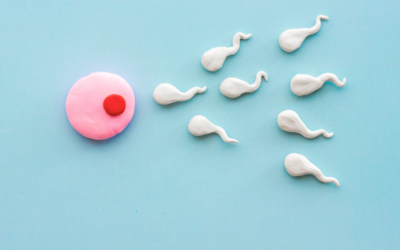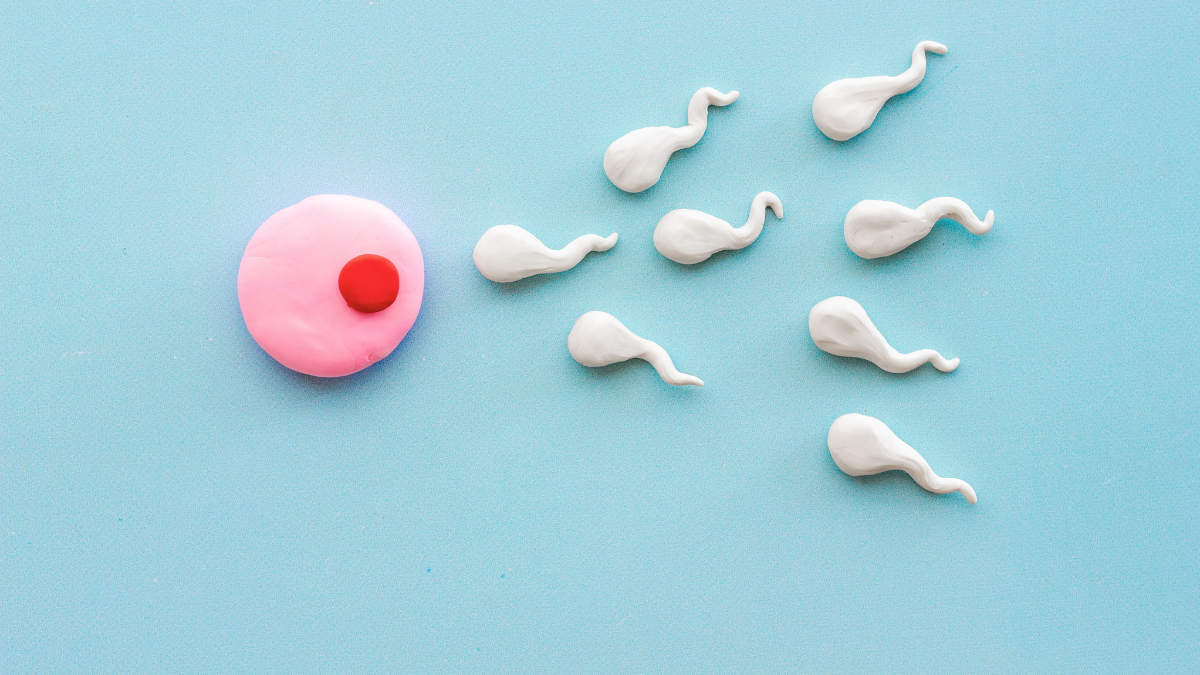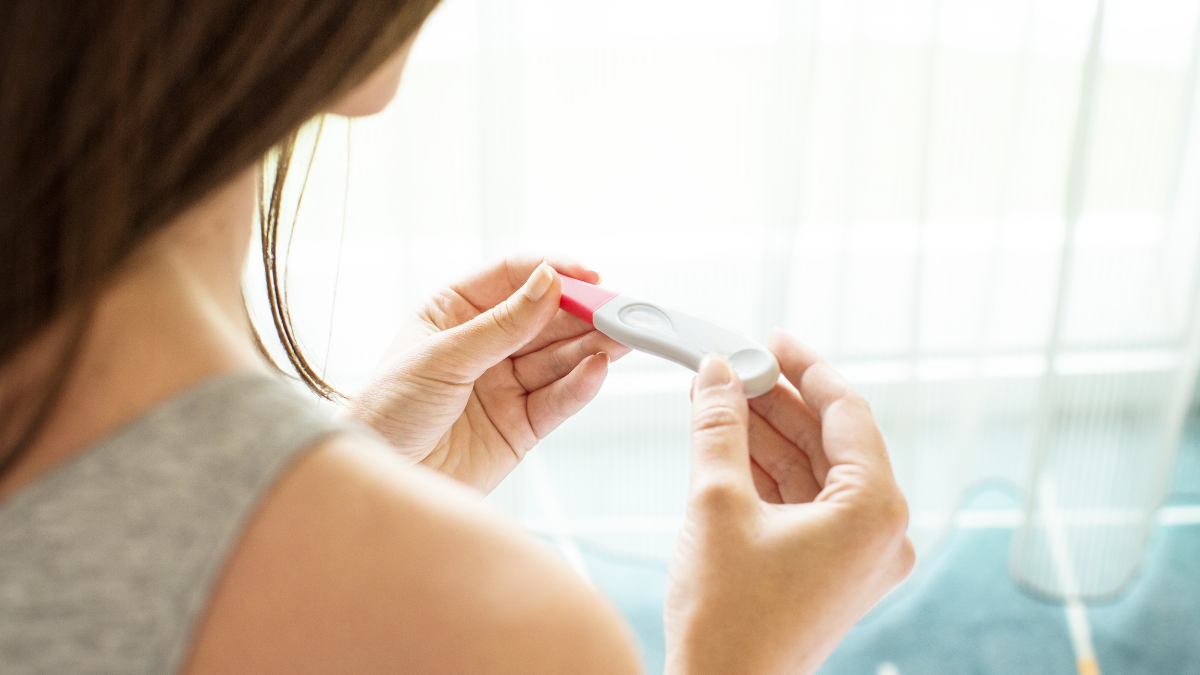When couples are trying to conceive, most of the focus is often on women’s health. However, male fertility plays an equally critical role in conception. Factors such as sperm count, motility, morphology, and overall reproductive health are heavily influenced by lifestyle choices, and particularly by diet. Following a fertility diet for men can significantly improve sperm quality and increase the chances of conception.
In this article, we’ll explore everything you need to know about a fertility diet for men, including essential nutrients, foods to include, foods to avoid, and practical lifestyle tips.
Table of Contents
Why a Fertility Diet for Men Matters
Male fertility is determined by the quality and quantity of sperm, as well as hormone levels. Poor diet, exposure to toxins, stress, and obesity can negatively impact sperm production and function. A proper fertility diet for men focuses on nutrient-dense foods that provide antioxidants, vitamins, and minerals critical for reproductive health. These nutrients can help:
- Increase sperm count
- Improve sperm motility (movement)
- Enhance sperm morphology (shape)
- Reduce oxidative stress and DNA damage
- Support healthy testosterone levels
By adopting a nutrient-rich fertility diet for men, you can take an active role in supporting reproductive health naturally.
Foods to Include in a Fertility Diet for Men
A well-rounded fertility diet for men should focus on whole, nutrient-rich foods that enhance reproductive health. Include:
- Lean proteins: Chicken, turkey, eggs, fish
- Whole grains: Brown rice, oats, quinoa
- Fruits: Berries, citrus fruits, pomegranates
- Vegetables: Leafy greens, bell peppers, carrots
- Nuts and seeds: Almonds, walnuts, pumpkin seeds, flaxseeds
- Healthy fats: Olive oil, avocado, fatty fish
- Legumes: Lentils, beans, chickpeas
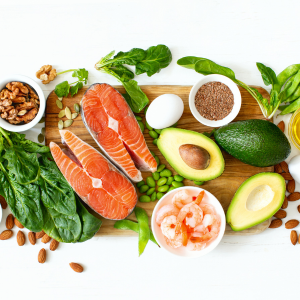
7 Essential Nutrients for Male Fertility
A fertility diet for men should focus on vitamins, minerals, antioxidants, and healthy fats that directly support sperm health. Adequate intake of these nutrients helps improve sperm count, motility, morphology, and overall reproductive function. Deficiencies can lead to hormonal imbalances, oxidative damage to sperm DNA, and reduced fertility. Here are the most essential nutrients for male fertility and how to include them in your diet:
1. Zinc
Zinc is crucial for:
- Testosterone production
- Sperm formation
- Hormone balance
Benefits:
- Improves sperm count and motility
- Reduces abnormal sperm shapes
Food Sources: Oysters, beef, lamb, pumpkin seeds, chickpeas
Including zinc-rich foods regularly supports reproductive health and overall well-being. Zinc also strengthens immunity and contributes to healthy cell division, making it one of the most vital nutrients in a fertility diet for men.
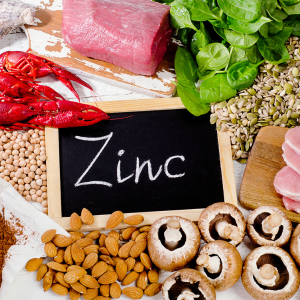
2. Selenium
Selenium acts as a powerful antioxidant for male reproductive health.
Benefits:
- Protects sperm from oxidative stress and DNA damage
- Improves sperm motility
- Supports hormone regulation
Food Sources: Brazil nuts, tuna, sardines, eggs, sunflower seeds
Selenium is essential for maintaining healthy sperm structure and function. Incorporating selenium into your daily diet reduces oxidative damage and enhances fertility naturally, making it a key component of a fertility diet for men.
3. Vitamin C
Vitamin C is a water-soluble antioxidant critical for sperm protection.
Benefits:
- Prevents sperm clumping, improving motility
- Protects sperm from oxidative damage
- Supports testosterone and immune health
Food Sources: Oranges, strawberries, kiwi, bell peppers, broccoli
Vitamin C enhances sperm quality and protects DNA, making it a crucial nutrient in a fertility diet for men. Including it daily helps improve overall reproductive function and conception chances.
4. Vitamin E
Vitamin E is a fat-soluble antioxidant that maintains sperm health.
Benefits:
- Protects sperm cell membranes from oxidative stress
- Improves motility and morphology
- Supports reproductive hormones
Food Sources: Almonds, hazelnuts, spinach, kale, avocado
Adding vitamin E-rich foods to a fertility diet for men improves sperm count, motility, and overall fertility. It works synergistically with vitamin C and selenium to protect sperm cells and enhance reproductive function.
5. Omega-3 Fatty Acids
Omega-3 fatty acids are essential fats that support sperm and hormonal health.
Benefits:
- Improves sperm membrane fluidity
- Enhances motility and morphology
- Reduces inflammation and oxidative stress
Food Sources: Salmon, mackerel, sardines, walnuts, flaxseeds, chia seeds
Including omega-3s in a fertility diet for men enhances sperm flexibility and swimming ability, supporting natural conception. Regular intake also promotes balanced testosterone levels and overall reproductive health.

6. Folate (Vitamin B9)
Folate is critical for sperm DNA and chromosomal health.
Benefits:
- Supports DNA replication in sperm cells
- Reduces chromosomal abnormalities
- Improves sperm quality
Food Sources: Spinach, kale, asparagus, avocado, fortified cereals
Folate-rich foods in a fertility diet for men help maintain healthy sperm DNA, reducing the risk of genetic issues and improving reproductive success.
7. Coenzyme Q10 (CoQ10)
CoQ10 is a naturally occurring antioxidant that enhances male fertility.
Benefits:
- Protects sperm from oxidative stress
- Improves sperm count and motility
- Supports energy production in sperm cells
Food Sources: Fatty fish, spinach, broccoli, whole grains, supplements if recommended
Incorporating CoQ10 in a fertility diet for men strengthens sperm cells, enhances motility, and contributes to overall reproductive health, making it an essential nutrient for men trying to conceive.
Understanding Male Fertility and the Role of Diet
Male fertility is influenced by sperm count, motility (movement), morphology (shape), and overall reproductive health. While genetics and age play a role, diet is one of the most controllable factors that can significantly improve fertility. Key aspects include:
- Sperm Production: Nutrient-rich foods provide essential building blocks for healthy sperm formation.
- Hormone Regulation: Vitamins and minerals support testosterone and other reproductive hormones.
- Protection from Oxidative Stress: Antioxidants reduce damage to sperm DNA caused by free radicals.
- Overall Health: A balanced diet improves energy, metabolism, and reproductive function.
Following a fertility diet for men can enhance sperm quality, motility, and morphology, increasing the chances of conception naturally.
Zinc and Its Importance in a Fertility Diet for Men
Zinc is a vital mineral for male reproductive health and is a cornerstone of a fertility diet for men. Its benefits include:
- Testosterone Production: Zinc supports the production of testosterone, a key hormone for sperm formation and sexual health.
- Sperm Formation: Adequate zinc improves sperm count, motility, and morphology.
- Hormone Regulation: Zinc helps maintain hormonal balance critical for reproductive function.
- Immune Support: Zinc strengthens the immune system, indirectly supporting fertility.
Food Sources: Oysters, beef, lamb, pumpkin seeds, chickpeas
Including zinc-rich foods daily can significantly improve sperm quality and overall reproductive health, making it one of the most essential nutrients for men trying to conceive.
How Vitamins C and E Improve Male Reproductive Health
Vitamins C and E are powerful antioxidants that play a key role in a fertility diet for men. Their benefits include:
- Vitamin C: Protects sperm from oxidative stress, prevents clumping, and improves motility.
- Vitamin E: Strengthens sperm cell membranes, enhances motility, and protects DNA from free radical damage.
- Synergistic Effect: Together, these vitamins enhance overall sperm quality and morphology.
- Hormone Support: Both vitamins contribute to healthy testosterone levels, supporting reproductive function.
- Immune Health: Antioxidant properties also support the immune system, indirectly aiding fertility.
Food Sources: Citrus fruits, strawberries, kiwi, bell peppers, broccoli, almonds, spinach, kale, avocado
Including these vitamins daily helps men maintain healthy sperm and improve fertility naturally.
The Role of Omega-3 Fatty Acids in Sperm Quality
Omega-3 fatty acids are essential healthy fats that significantly impact male reproductive health. They are a critical component of a fertility diet for men. Key benefits include:
- Sperm Membrane Health: Omega-3s improve sperm membrane fluidity, which enhances motility and overall function.
- Improved Motility: Helps sperm swim more efficiently toward the egg.
- Morphology Support: Promotes proper sperm shape and structure.
- Hormone Balance: Supports testosterone production and overall reproductive hormone regulation.
- Anti-Inflammatory Effects: Reduces oxidative stress and inflammation, protecting sperm DNA.
Food Sources: Salmon, mackerel, sardines, walnuts, flaxseeds, chia seeds
Regular intake of omega-3s is crucial for healthy sperm and increased fertility potential.
Top Foods to Include in a Fertility Diet for Men
A fertility diet for men should focus on nutrient-dense foods that support sperm health, hormone balance, and overall reproductive function. Key foods include:
- Lean Proteins: Chicken, turkey, eggs, and fish provide essential amino acids for sperm production.
- Whole Grains: Brown rice, oats, and quinoa supply energy and important vitamins like B-complex and folate.
- Fruits: Berries, citrus fruits, and pomegranates are rich in antioxidants that protect sperm from oxidative stress.
- Vegetables: Leafy greens, bell peppers, and carrots provide vitamins, minerals, and fiber.
- Nuts and Seeds: Almonds, walnuts, pumpkin seeds, and flaxseeds supply zinc, vitamin E, and omega-3s.
- Healthy Fats: Olive oil, avocado, and fatty fish improve sperm quality and hormone function.
Including these foods regularly supports optimal fertility and reproductive health.
Foods and Habits That Can Harm Male Fertility
Certain foods and lifestyle habits can negatively impact sperm health and overall male fertility. Key factors include:
- Processed and High-Fat Foods: Fast food, fried snacks, and processed meats can reduce sperm count and motility.
- Excess Sugar: Sugary drinks and desserts may lead to hormonal imbalances affecting fertility.
- Alcohol and Smoking: Both impair sperm DNA, reduce motility, and lower testosterone levels.
- Obesity and Sedentary Lifestyle: Excess weight and inactivity disrupt hormone balance and sperm quality.
- Environmental Toxins and Heat: Prolonged exposure to chemicals or hot environments (saunas, hot tubs) can impair sperm production.
Avoiding these harmful foods and habits is essential for maintaining a fertility diet for men and optimizing reproductive health.
Lifestyle Tips to Complement a Fertility Diet for Men
Diet alone is not enough to optimize male fertility. Combining a fertility diet for men with healthy lifestyle habits can significantly improve sperm health. Key tips include:
- Regular Exercise: Moderate physical activity boosts testosterone and supports sperm quality.
- Maintain Healthy Weight: Reduces hormonal imbalances and improves sperm count and motility.
- Manage Stress: Chronic stress affects hormones and sperm production; meditation or yoga can help.
- Avoid Smoking and Excess Alcohol: Both impair sperm DNA and reduce fertility.
- Limit Heat and Toxins: Avoid prolonged exposure to saunas, hot tubs, and harmful chemicals.
Incorporating these habits with a nutrient-rich diet enhances reproductive health and increases the chances of conception naturally.
How to Boost Sperm in 3 Days
While long-term lifestyle changes are the most effective for improving sperm health, certain strategies can help optimize sperm function in a short period, such as three days. A fertility diet for men combined with focused habits can make a noticeable difference in sperm motility and overall quality.
Diet Adjustments:
- Increase antioxidants: Eat fruits like berries, citrus, and kiwi to reduce oxidative stress on sperm.
- Include zinc and selenium: Foods like pumpkin seeds, eggs, and Brazil nuts support sperm production.
- Hydrate well: Drinking plenty of water improves semen volume and sperm mobility.
Lifestyle Changes:
- Avoid heat exposure: Stay away from hot tubs, saunas, or tight clothing that can raise testicular temperature.
- Limit alcohol and caffeine: Both can impair sperm motility.
- Get quality sleep: Adequate rest supports hormone regulation and sperm production.
Light Exercise: Moderate workouts improve blood circulation and testosterone levels, positively affecting sperm function.
While three days is short for long-term improvements, these steps can help optimize sperm health, making them more active, resilient, and prepared for fertilization. Consistency over weeks will deliver more substantial results.
How to Check Sperm Count
Checking sperm count is an essential part of assessing male fertility. It measures the number, motility (movement), and overall health of sperm.
1. Semen Analysis at a Clinic:
- The most reliable method.
- A semen sample is collected, usually via masturbation, at a clinic or lab.
- The lab evaluates sperm count, motility, morphology (shape), volume, and pH levels.
2. Home Sperm Test Kits:
- Convenient and available at pharmacies or online.
- Provide an estimate of sperm concentration and sometimes motility.
- Less comprehensive than professional lab tests.
Preparation Tips:
- Abstain from ejaculation for 2–5 days before testing.
- Avoid alcohol, smoking, and excessive heat before the test.
Regular sperm testing, along with a fertility diet for men and a healthy lifestyle, helps track reproductive health and plan for conception effectively.
What Kills Sperm Quality
Several lifestyle habits, environmental factors, and dietary choices can negatively affect sperm quality, reducing fertility in men. Understanding these factors is crucial for maintaining reproductive health.
1. Poor Diet: High consumption of processed foods, trans fats, sugary snacks, and low-nutrient meals can reduce sperm count and motility.
2. Smoking and Alcohol: Tobacco and excessive alcohol intake damage sperm DNA, lower testosterone, and impair motility.
3. Stress and Lack of Sleep: Chronic stress disrupts hormone balance, while inadequate sleep negatively impacts sperm production.
4. Obesity and Sedentary Lifestyle: Excess weight alters hormone levels and reduces sperm quality.
5. Heat and Environmental Toxins: Prolonged exposure to hot tubs, saunas, laptops on the lap, or chemicals can impair sperm production.
6. Medications and Drugs: Certain prescription drugs and recreational drugs may reduce sperm count and affect morphology.
Adopting a fertility diet for men, avoiding harmful habits, and maintaining a healthy lifestyle are key to protecting sperm quality and boosting fertility naturally.
Does Sperm Refill in 24 Hours?
Many men wonder if sperm can “refill” quickly after ejaculation. While sperm production is continuous, it does not happen instantly within 24 hours. The body constantly produces sperm in the testes, but it takes about 64–74 days for a sperm cell to fully mature.
Key Points to Understand:
- Short-term Recovery: After ejaculation, semen volume and sperm concentration may partially recover within 24–48 hours, but sperm count and quality are usually lower if ejaculation is frequent.
- Optimal Fertility: For conception, a short abstinence of 2–5 days is generally recommended to ensure sperm concentration and motility are at their best.
- Diet and Lifestyle Impact: A fertility diet for men, along with proper hydration, sleep, and avoiding toxins, can support faster sperm replenishment and improve overall quality.
What is the Fastest Sperm Booster
Boosting sperm health quickly requires a combination of diet, lifestyle adjustments, and targeted nutrients. While there’s no instant cure, certain strategies can improve sperm motility, count, and overall quality within a short period.
1. Nutrient-Rich Foods:
- Zinc and Selenium: Found in oysters, eggs, Brazil nuts, and pumpkin seeds, these minerals support sperm production and motility.
- Antioxidants: Vitamins C and E, found in citrus fruits, berries, nuts, and leafy greens, protect sperm from oxidative damage.
- Omega-3 Fatty Acids: Salmon, mackerel, walnuts, and flaxseeds enhance sperm membrane fluidity and motility.
2. Lifestyle Adjustments:
- Avoid hot tubs, saunas, and tight clothing to prevent testicular overheating.
- Quit smoking and limit alcohol to reduce DNA damage in sperm.
- Stay hydrated, get quality sleep, and manage stress to optimize hormone balance.
3. Moderate Exercise: Regular physical activity increases testosterone and supports reproductive health.
Combining a fertility diet for men with these healthy habits provides the fastest natural improvement in sperm quality and overall fertility.
Conclusion
Male fertility plays a crucial role in conception, and diet is one of the most controllable factors that can make a significant difference. By focusing on a fertility diet for men rich in zinc, selenium, vitamins C and E, omega-3 fatty acids, folate, and Coenzyme Q10, men can naturally improve sperm count, motility, morphology, and overall reproductive health.
Incorporating nutrient-dense foods such as lean proteins, leafy greens, fruits, nuts, seeds, and fatty fish, while avoiding processed foods, excessive sugar, and harmful habits, creates an optimal environment for healthy sperm.
Remember, diet alone works best when combined with a healthy lifestyle—adequate sleep, moderate exercise, stress management, and avoiding toxins. Consistently following these strategies not only boosts fertility but also enhances overall well-being, giving couples the best possible chance of conception.

